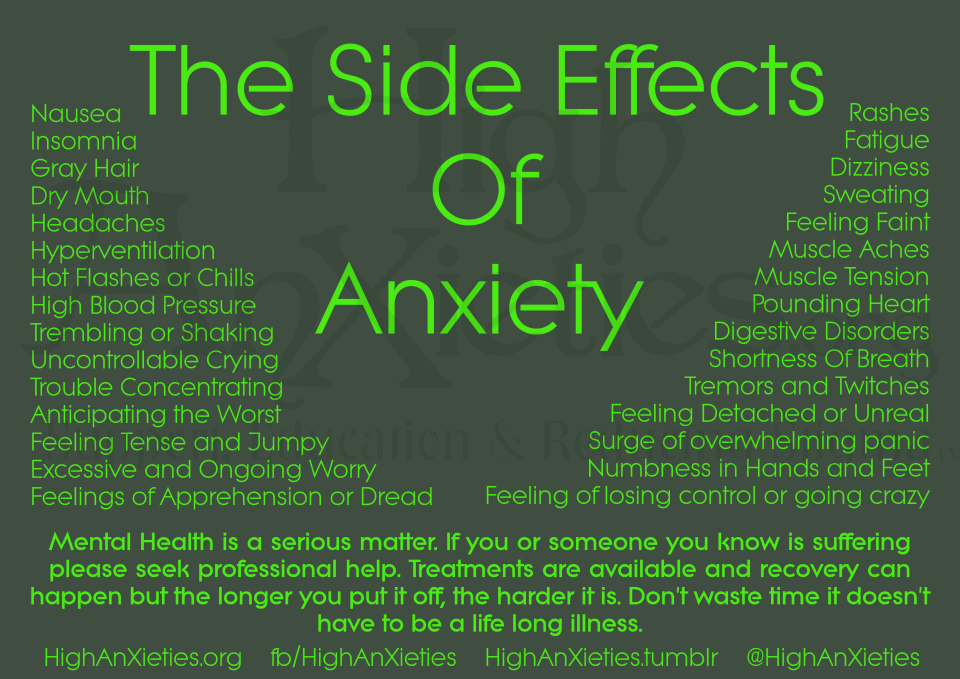An Anxiety-Ridden Society
An Anxiety-Ridden Society

In anticipation of writing this article, I Googled the word “anxiety.” The results showed that within the previous 24 hours, there were more than three dozen articles posted on the internet about anxiety. Here are some titles of those articles:
• “America’s New ‘Anxiety’ Disorder”
• “Most Children With Anxiety Relapse, Regardless of Treatment”
• “Early Intervention Program Tackles Anxiety in Primary Care”
• “Poor Sleep in Anxiety, Depression May Make It Harder to See Positive”
• “Post-Election, Doctors See Kids Suffering Trump-Related Anxiety”
• “How to Find a Good Job for Yourself When You Have Anxiety”
• “Can Hypnosis Improve Post-Op Anxiety Pain in Children?”
• “‘Game of Thrones’ Star Lena Headey Tweets With Fans About Anxiety”
As I scrolled through the Google results pages, I saw more than 250 articles that were published within the past 30 days about anxiety.
Why so many articles about anxiety?
It seems as though everywhere I turn, someone is talking or writing about anxiety. On Facebook, numerous people post comments about their own anxiety. In their anguish, they often reveal shocking and embarrassing details about their family situations and what they are personally experiencing.
The National Institute of Mental Health reports that more than 40 million adults in the United States suffer from anxiety disorders, costing the U.S. more than $42 billion a year.
The Anxiety and Depression Association of America has reported that anxiety disorders often cause chronic pain and other ailments such as migraines, instability, weakness, muscle pain, fatigue, and persistent aches or stiffness anywhere along the spine, including “sharp, localized pain in the neck, upper back, or lower back, especially after lifting heavy objects or engaging in strenuous activity; and chronic ache in the middle or lower back, especially after sitting or standing for extended periods.”
The dictionary defines anxiety as “a feeling of worry, nervousness, or unease, typically about an imminent event or something with an uncertain outcome.” The best summary of anxiety that I found was on Wikipedia:
Anxiety is an emotion characterized by an unpleasant state of inner turmoil, often accompanied by nervous behavior, such as pacing back and forth, somatic complaints, and rumination. It is the subjectively unpleasant feelings of dread over anticipated events, such as the feeling of imminent death. Anxiety is not the same as fear, which is a response to a real or perceived immediate threat, whereas anxiety is the expectation of a future threat. [Emphasis added.] Anxiety is a feeling of uneasiness and worry, usually generalized and unfocused as an overreaction to a situation that is only subjectively seen as menacing. It is often accompanied by muscular tension, restlessness, fatigue, and problems in concentration. Anxiety can be appropriate, but when experienced regularly the individual may suffer from an anxiety disorder.
I’m only aware of one occasion when Jesus Christ suffered from anxiety. It occurred the night before His death, while He was praying in the Garden of Gethsemane. In anticipation of the abandonment and betrayal of His closest friends, and His upcoming torture and death, He sweat drops of blood.
The physical reaction He experienced as a result of His anxiety confirmed that there is a direct correlation between anxiety and physical pain and suffering.
Because there were no other recorded events of our Lord suffering from anxiety, we can assume that He possessed and practiced the skills that were necessary to manage and overcome whatever anxiety that came his way.
Unfortunately, anxiety is a part of the human condition. Because all of us must deal with anxiety, it’s important that we learn the coping skills that are necessary to manage and overcome the anxiety that inevitably comes our way.
I have an out-of-town friend who is a lawyer; he sought counseling because he struggled to complete his work and serve his clients in a timely manner due to anxiety. After several unsuccessful sessions with his counselor, he approached the managing director of the counseling clinic.
He explained his problem to her and asked who the best counselor was to help him with his problem. The director named one counselor out of the 40 counselors who worked for the clinic.
My friend then went to that counselor for help, and within a short period of time was able to learn and develop the skills that were necessary to manage and overcome his anxiety. Since then, he has been able to promptly complete his work and properly serve his clients.
I asked my friend to share with me what he had learned from his counselor. He told me that his counselor provided him with three tools that helped him manage his stress and anxiety.
I’ll share those tools with you next week.




2 Comments
Thank you for this post. I look forward to the post next week.
Dear Georgette and Harry –
Blessings on this special Sunday dedicated to Divine Mercy – the remedy for the anxiety you’ve sent us today! We’ve had a wonderful entrance-week leading to Easter Sunday, and now, another that continues the “input” from Jesus Our Divine Savior. Thank you, and greetings to your children, with love and prayers for all of you! Sister Roberta